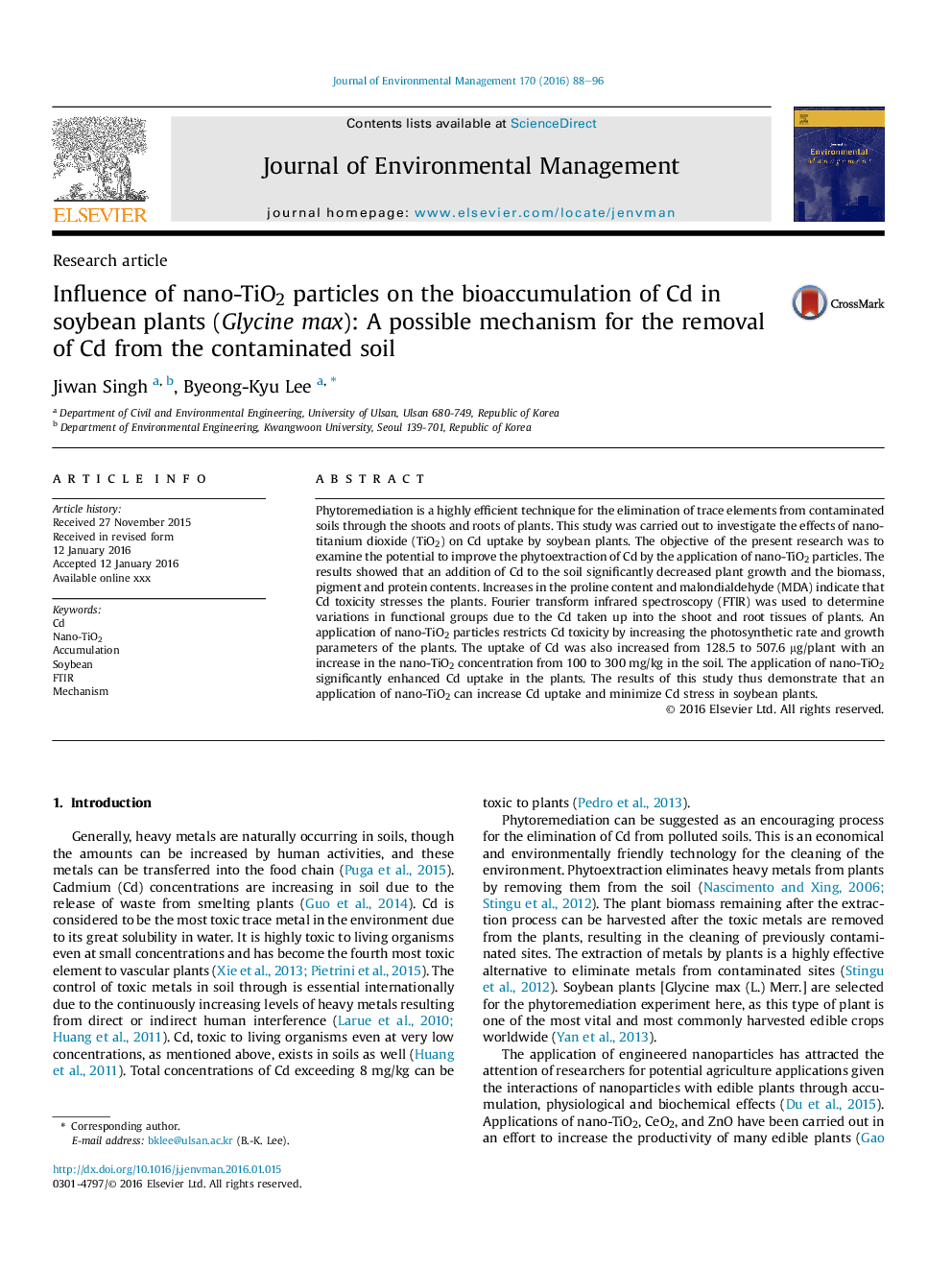| Article ID | Journal | Published Year | Pages | File Type |
|---|---|---|---|---|
| 7480860 | Journal of Environmental Management | 2016 | 9 Pages |
Abstract
Phytoremediation is a highly efficient technique for the elimination of trace elements from contaminated soils through the shoots and roots of plants. This study was carried out to investigate the effects of nano-titanium dioxide (TiO2) on Cd uptake by soybean plants. The objective of the present research was to examine the potential to improve the phytoextraction of Cd by the application of nano-TiO2 particles. The results showed that an addition of Cd to the soil significantly decreased plant growth and the biomass, pigment and protein contents. Increases in the proline content and malondialdehyde (MDA) indicate that Cd toxicity stresses the plants. Fourier transform infrared spectroscopy (FTIR) was used to determine variations in functional groups due to the Cd taken up into the shoot and root tissues of plants. An application of nano-TiO2 particles restricts Cd toxicity by increasing the photosynthetic rate and growth parameters of the plants. The uptake of Cd was also increased from 128.5 to 507.6 μg/plant with an increase in the nano-TiO2 concentration from 100 to 300 mg/kg in the soil. The application of nano-TiO2 significantly enhanced Cd uptake in the plants. The results of this study thus demonstrate that an application of nano-TiO2 can increase Cd uptake and minimize Cd stress in soybean plants.
Related Topics
Physical Sciences and Engineering
Energy
Renewable Energy, Sustainability and the Environment
Authors
Jiwan Singh, Byeong-Kyu Lee,
